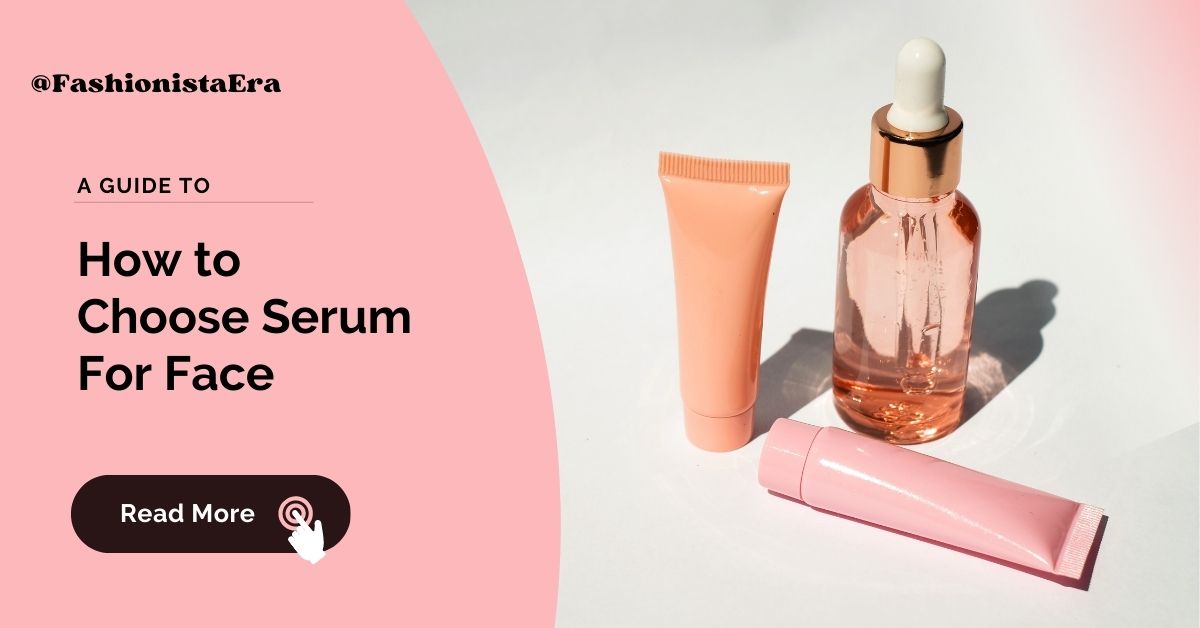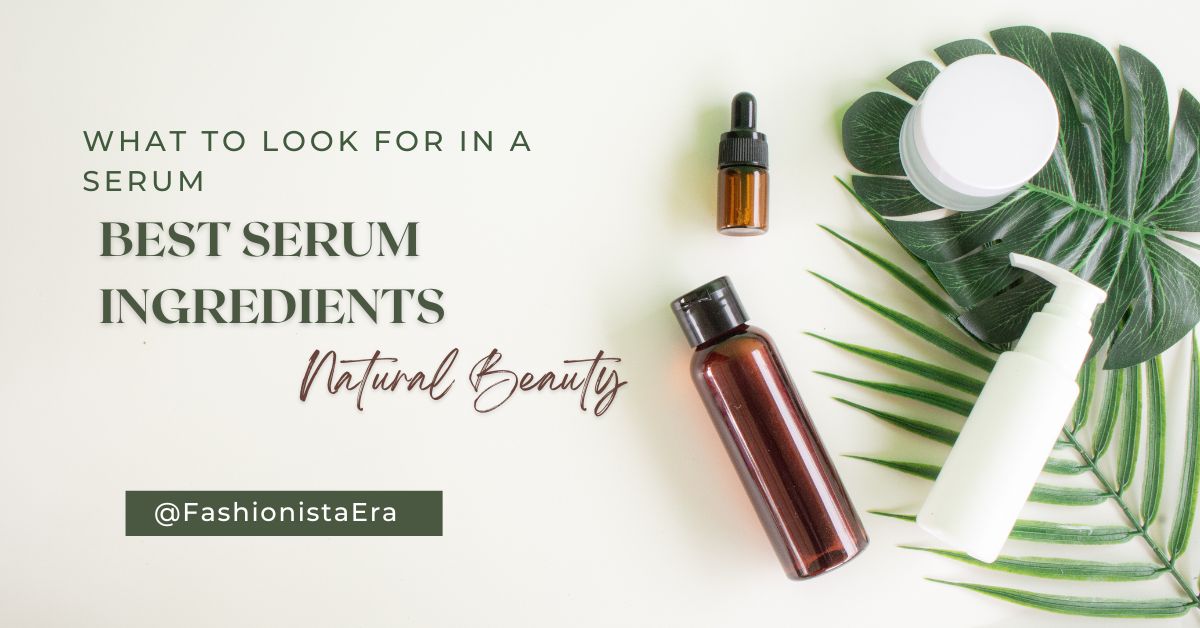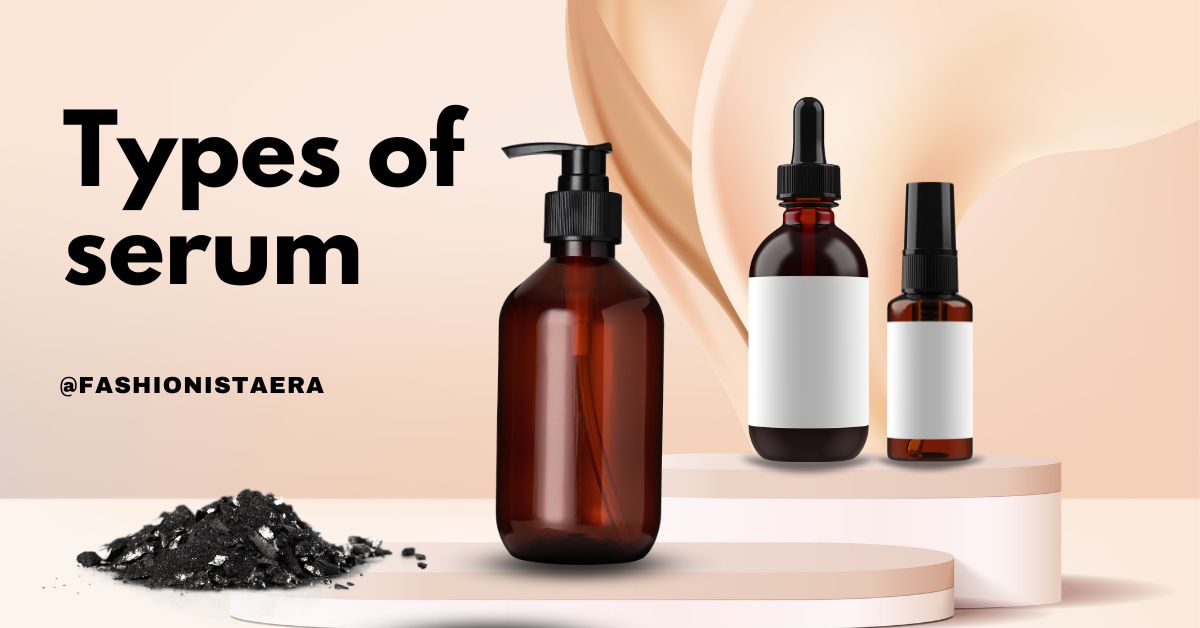Table of Contents
Are you ready to take your skincare routine to the next level? Look no further than serum! This powerful elixir is packed with potent and best serum ingredients that can transform your skin in ways you never thought possible. But with so many options out there, it can be overwhelming trying to figure out How to choose serum for face and which serum is right for you. That’s where we come in – in this blog post, we’ll break down everything you need to know about choosing the perfect serum for your face. From understanding the benefits of different types of serums to tips on how to apply them effectively, get ready to glow like never before!
What is serum?
Serum is a skincare product that has gained immense popularity in recent years due to its numerous benefits. It is a lightweight and fast-absorbing formula that penetrates deep into the skin, delivering high concentrations of best serum ingredients.
Unlike moisturizers, serums do not contain occlusive ingredients such as petrolatum or mineral oil which can block pores and cause breakouts. Instead, they are formulated with specific active ingredients like antioxidants, peptides, and hyaluronic acid that target particular skin concerns.
Serums come in various types – hydrating serums for dry skin, brightening serums to tackle dullness and dark spots, anti-aging serums for fine lines and wrinkles – just to name a few. They can also be used alone or layered under moisturizer depending on your preference.
Serum is an excellent addition to any skincare routine as it delivers concentrated doses of powerful actives directly into the skin layers where they are most needed.

What are the benefits of serum?
Serums have become a popular skincare product in recent years, and for good reason. They offer a range of benefits that can help improve the overall health and appearance of your skin.
One of the main benefits of using serum is that it can provide deep hydration to your skin. Unlike moisturizers, serums are lightweight and have smaller molecules that penetrate deeper into the skin, delivering much-needed moisture to where it’s needed most.
In addition to hydration, serums also contain powerful antioxidants such as vitamin C and E which help protect your skin from environmental stressors like pollution and UV rays. This protection helps prevent premature aging by reducing the damage caused by free radicals.
Another benefit of using serums is their ability to target specific concerns such as fine lines, wrinkles or dark spots. Many serums contain active ingredients like retinol or glycolic acid which promote cell turnover and stimulate collagen production – two key factors in maintaining youthful-looking skin.
Serums are also great at improving overall texture and tone of your complexion by gently exfoliating dead cells from the surface layer of your skin while increasing circulation for a brighter glow!
Incorporating a serum into your daily skincare routine can make all the difference in achieving healthy-looking radiant skin!
What does a serum do for your skin?
Serums are often considered the superheroes of skincare products (best skincare serum) due to their potent and concentrated formulas. A serum is a lightweight, fast-absorbing liquid that penetrates deep into your skin to deliver active ingredients directly to the cells for maximum efficacy.
One of the main benefits of using a serum is its ability to provide intense hydration and nourishment to the skin. Serums work by helping to boost moisture levels in your skin, leaving it looking plump, smooth and radiant.
Another way serums benefit your skin is by providing targeted treatment for specific concerns such as fine lines, wrinkles, dark spots or hyperpigmentation. With regular use, serums can help improve these issues over time.
In addition to targeting specific concerns, serums also contain antioxidants that protect against free radical damage from environmental stressors like pollution and UV rays. This helps prevent premature aging and keeps your skin healthy-looking for longer.
Using a serum regularly can help you achieve smoother texture, brighter complexion and healthier-looking skin overall. It’s an essential step in any skincare routine!
The different types of serum
There are various types of serums available in the market, each with its unique set of benefits. One type is the anti-aging serum, which targets fine lines and wrinkles to achieve a more youthful appearance.
Another type is the brightening serum, which helps to even out skin tone and reduce discoloration. This kind of serum often contains ingredients like vitamin C or niacinamide that can improve overall complexion.
Hydrating serums are also popular as they help to moisturize and nourish dry skin. These typically contain humectants such as glycerin or hyaluronic acid that help retain moisture in the skin.
Acne-fighting serums usually contain salicylic acid or benzoyl peroxide to combat blemishes effectively. They work by unclogging pores and reducing inflammation while preventing future breakouts.
There are targeted treatment serums for specific concerns such as dark circles under eyes or hyperpigmentation caused by sun damage.
It’s important to choose a serum based on your individual needs and skin type for optimal results.
What to look for in a serum: best serum ingredients

When it comes to choosing the right serum for face, there are a few key factors you should consider. First and foremost, take a look at the ingredients list.
Look for serums that contain high concentrations of active ingredients such as hyaluronic acid, vitamin C, retinol, or niacinamide. These powerful compounds can help address specific skin concerns like hyperpigmentation or fine lines and wrinkles.
Another important factor to consider is the texture of the serum. Some people prefer lightweight serums that absorb quickly into the skin while others may prefer thicker formulations that provide more hydration.
It’s also essential to choose a serum that is suitable for your skin type. If you have oily skin, opt for a lightweight serum with non-comedogenic ingredients to avoid clogging pores. For dry or mature skin types, look for hydrating formulas with nourishing oils.
Ultimately, finding the right serum requires some trial and error. Don’t be afraid to try different products until you find one that suits your needs best!
How to choose serum for face?
When it comes to choosing the right serum for face, it’s important to consider your skin type and concerns. If you have oily or acne-prone skin, look for serums with salicylic acid or niacinamide to help control oil production and reduce inflammation.
For dry or sensitive skin, opt for a serum with hyaluronic acid or ceramides to provide hydration and strengthen the skin barrier. Anti-aging serums often contain retinol or vitamin C to improve fine lines and brighten the complexion.
It’s also important to pay attention to the ingredients list and avoid any potential irritants such as alcohol, fragrances, or essential oils if you have sensitive skin. Look for products that are labeled non-comedogenic, which means they won’t clog pores.
Don’t forget about texture – some people prefer lightweight formulas while others may benefit from more emollient options. Don’t be afraid to experiment until you find a serum that works best for your individual needs!
What to Look for When choosing a Serum for Your Skin Type
Choosing the right serum for your skin type can be a daunting task. But don’t worry, with some basic knowledge and understanding of your skin’s needs, you’ll be able to make an informed decision.
Firstly, identify your skin type – whether it’s oily, dry or combination. For oily skin types, look for lightweight serums that won’t clog your pores. Dry skin types should opt for hydrating and nourishing serums that contain ingredients like hyaluronic acid and ceramides.
Next, consider any specific concerns you might have – such as acne-prone or aging skin. Acne-prone skin will benefit from serums containing salicylic acid or tea tree oil to help unclog pores and reduce inflammation. Anti-aging serums typically feature retinol or vitamin C to promote collagen production and brighten the complexion.
It’s also essential to keep in mind any allergies you may have; if you are allergic to certain ingredients such as fragrances or plant extracts steer clear of these when choosing a serum.
Always read ingredient lists carefully before purchasing a serum. Look out for beneficial ingredients like niacinamide (vitamin B3), antioxidants like vitamin E & Ferulic Acid which protects against free radical damage ,and peptides which helps repair damaged cells on the surface of the face.
By taking these factors into consideration when choosing a serum tailored specifically towards your unique needs is key in achieving healthy-looking radiant skin!
Types of serum
Serums come in different types, each with specific functions that cater to varying skin concerns. The main types of serum include hydrating serums, brightening serums, anti-aging serums, and acne-fighting serums.
Hydrating Serums
They provide intense hydration to the skin by penetrating deep into the layers of the dermis. These types of serum are best for people with dry or dehydrated skin.
Brightening Serums
These contain ingredients that target dark spots and uneven skin tone. They work by inhibiting melanin production in the skin resulting in a brighter complexion.
Anti-Aging Serums
They help reduce fine lines, wrinkles and other signs of aging such as saggy skin. They usually contain retinol which boosts collagen production thus improving overall texture and appearance of the skin.
Acne-fighting Serums
They typically have salicylic acid or benzoyl peroxide which helps unclog pores reducing breakouts on acne-prone skins.
It is crucial to choose a serum based on your particular concern; this way you can get maximum benefits from it.

Best serum for face glow
The best serum for face glow is one that contains ingredients that promote radiance and luminosity. Look for serums that contain vitamin C, which brightens the skin and evens out skin tone. Another ingredient to consider is niacinamide, a form of vitamin B3, which helps reduce hyperpigmentation and improves overall skin texture.
Serums containing hyaluronic acid are also great for achieving a glowing complexion as they hydrate the skin from within. This ingredient can hold up to 1000 times its weight in water, making it an excellent moisturizing agent.
Another crucial factor when choosing a serum for face glow is to ensure it has antioxidant properties. Antioxidants help fight free radicals that damage the skin cells leading to premature aging. Serums with green tea extract or resveratrol are known for their antioxidant benefits.
Make sure you choose a serum with lightweight consistency so it can easily penetrate into your pores without feeling heavy on your skin. A few drops of this magical potion will leave you with radiant and youthful-looking skin!
Best serum for fine lines
Fine lines and wrinkles are part of the aging process, but there are ways to minimize their appearance. One effective solution is to use a serum specifically designed for fine lines.
When choosing the best serum for fine lines, look for ingredients that stimulate collagen production such as retinol or peptides. Retinol can help reduce the look of fine lines by encouraging cell turnover while peptides work by boosting collagen and elastin production.
Another ingredient to consider is hyaluronic acid which plumps up the skin and reduces the visibility of wrinkles. Vitamin C is another potent ingredient that helps in reducing fine lines and brightens your complexion.
It’s also important to choose a serum with a lightweight formula that easily penetrates into your skin. The consistency should be smooth enough so it doesn’t clog pores or cause breakouts.
Some of the best serums for fine lines on the market include SkinCeuticals C E Ferulic Serum, Olay Regenerist Micro-Sculpting Serum, Sunday Riley Good Genes All-In-One Lactic Acid Treatment, Drunk Elephant T. L. C Framboos Glycolic Resurfacing Night Serum among others.
Incorporating these serums into your daily skincare routine will help you get smoother looking skin with fewer visible signs of aging over time!
Best oil serum for face
When it comes to choosing the best serum for your face, you may want to consider using an oil-based serum. Oil serums are great for those with dry or mature skin as they provide extra hydration and nourishment. They can also help regulate oil production in oily skin types, making them suitable for a wide range of users.
Some popular oils used in facial serums include jojoba, rosehip, argan, and marula oils. Jojoba oil is known for its ability to mimic the natural sebum produced by our skin while rosehip oil is high in antioxidants that protect against free radicals.
Argan oil has anti-inflammatory properties that can reduce redness and irritation on sensitive skin while marula oil is rich in fatty acids that soothe and hydrate dry skin.
Incorporating an oil serum into your skincare routine can help keep your complexion looking healthy and radiant. Just be sure to choose one that’s appropriate for your specific skin type and concerns.
How to apply serum
Applying serum may seem like a simple task, but there are some tips that can make all the difference in how effective it is. First and foremost, always apply your serum to clean skin. This will ensure maximum absorption of the product.
When applying your serum, use a small amount and gently massage it into your skin using upward motions. Be sure to focus on areas that need extra attention or have specific concerns such as fine lines or dark spots.
It’s important to give your serum time to fully absorb before applying any additional products such as moisturizer or sunscreen. This will allow the active ingredients in the serum to penetrate deeply into the skin and work their magic.
If you’re using multiple serums in your skincare routine, be sure to apply them in order from thinnest consistency to thickest consistency. This will ensure each product gets full absorption without being blocked by heavier products.
Don’t forget about your neck and décolletage! These areas can show signs of aging just as much as our faces do, so be sure to extend application of your facial serums onto these areas for complete coverage and protection.
Conclusion
In summary, how to choose serum for face is an essential step in achieving healthy, radiant skin. By understanding the various types of serums available and identifying the specific needs of your skin type, you can select a product that best suits your requirements. Keep in mind to look for quality ingredients, appropriate formulations for your concerns, and follow proper application techniques to attain optimal results.
With this guide at hand, you’re now equipped with the knowledge needed to navigate through the plethora of options in the market confidently. Remember that consistency is key when it comes to skincare; incorporating a suitable serum into your daily routine could be just what you need for rejuvenated and glowing skin!
How to Choose Serum for Face?

Consider your skin type, specific concerns, and key ingredients.
Can I use a face serum if I have sensitive skin?

Yes, you can use a face serum if you have sensitive skin. Look for serums specifically formulated for sensitive skin and those that are free from potential irritants.
